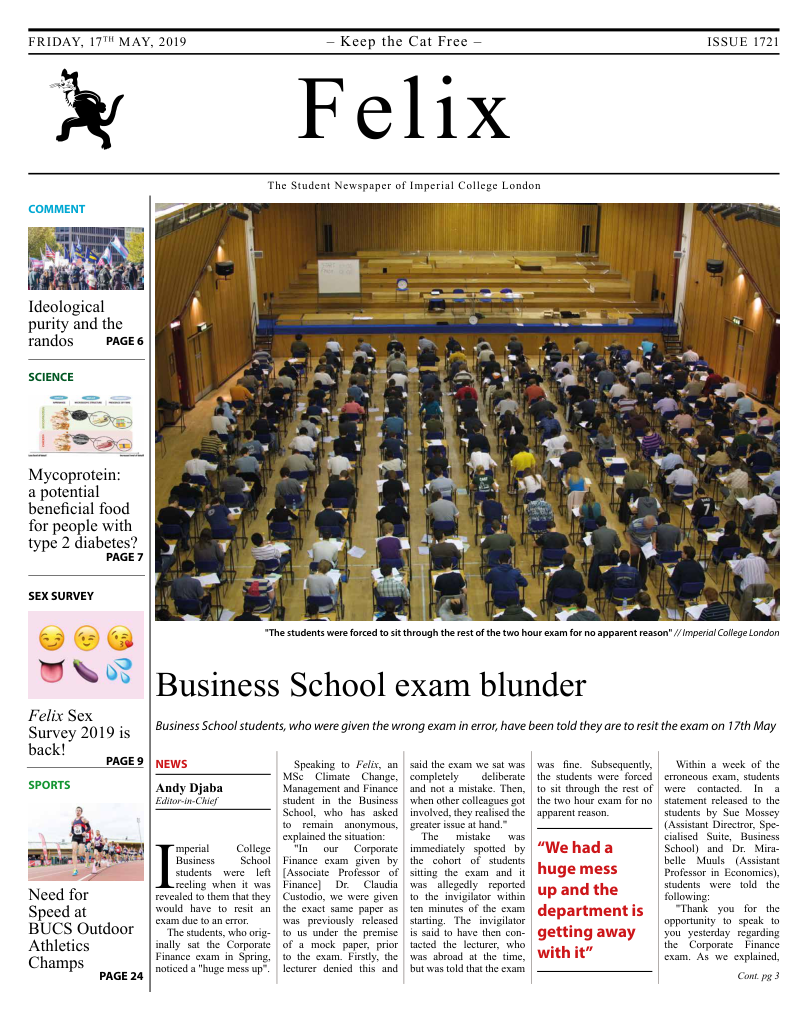Ideological purity and the Randos
Challenging transphobia will need more than demanding the deleting of some tweets, argues Adam Kutnar.
So another student, perhaps a coworker (or if you can imagine it, maybe even your university’s vice-provost of education) has shared some bigoted articles on their social media. They follow the twitter account of an organization that campaigns to take away support from trans children at school and frequently retweets Ray Blanchard, one of the world’s best-known academic transphobes. Based on their social media, you might make some sensible inferences about what your friend thinks personally and that some of their worldview is not as woke as you have come to expect from your peers in 2019. The beliefs this person apparently holds are clearly retrograde and wrong, but they are not what I want to talk about.
Last week, Felix reprinted the public letter to a member of the university’s senior management, asking them and the college to reiterate their support of trans people and to respond publicly to concerns regarding their social media sharing. Said person has since they were first approached deleted the objectionable tweets and unfollowed the mentioned accounts, but I do not know if this step is necessarily helpful towards LGBT+ liberation.
I am not saying that Imperial does not still have a long way to go in terms of its treatment of trans people. As the letter itself cites, a significant proportion feels excluded and more help needs to be made available, but prescribing who to follow and not follow on social media will only alienate, perhaps even the specific person you are trying to convince to change their mind. Posts on social media are somewhere in the gray zone between public and private, but they are some of the primary ways we express ourselves today and so ought to be protected. Bringing in the college to enforce posting habits means we are making private support for trans rights the ideological litmus test for randos, or rather, people whose opinions on the matter do not really affect anything.
There is the question of how visible and impactful a person must be before their thoughts and self-expression needs to be scrutinized, but in this case I would say the person is more in the let it go category. I doubt most students or staff could name the college top administrative staff beyond a few people, so even at Imperial have limited social influence. Furthermore, it is not part of the professional obligations of the person involved to set the college’s LGBT+ policies.
It is important to make the distinction here that these are personal tweets and not college endorsements and, while they are a part of a difficult trend among middle-aged people and some younger who do not have much of an excuse, it is not in our right to censor and limit them. Free speech on college campuses is already a talking point for people across the right and we should not be adding fuel to the fire and validating their preconceptions. When it comes to asking others to take down tweets, especially when they were already more than 6 months old when found judging by the Felix photo, it sounds more like an exercise of power rather than a means social progress.
In the last paragraph of the Felix article, Josef Willsher, the author of the letter, says of the vice-provost using their “public Twitter account to engage with tweets and to share articles… we really didn’t think it’s the place to do that”, which, while begging the question of what a twitter account is for in that case, is a sentiment I sympathize with. Some ideas are just awful and we need a way to get them out of people’s heads. Both the letter’s author and recipient mention the opportunity for “debate” somewhere else, but, as Willsher correctly identifies, that can often be damaging to trans people as it makes their existence a point a discussion and something up for grabs. Social media is not the place for it, but neither is probably a South Kensington campus. Privately approaching someone is probably the best way to convince them, but that can take years and is often frankly just impossible. But you have to try to change minds, in a real long-lasting way, not just censor their tweets and bringing in the college.







